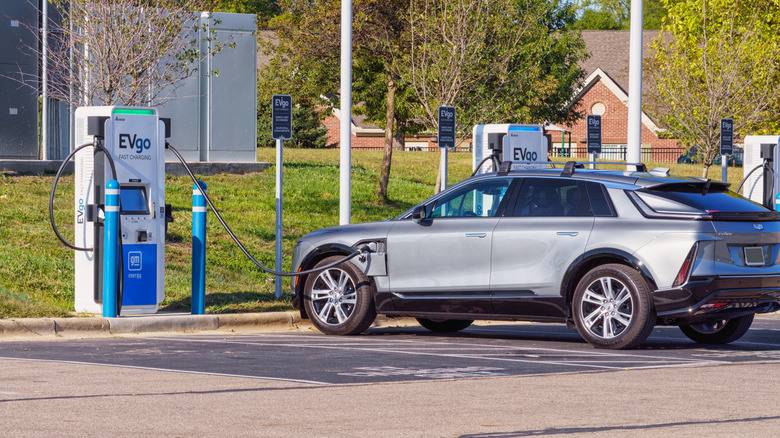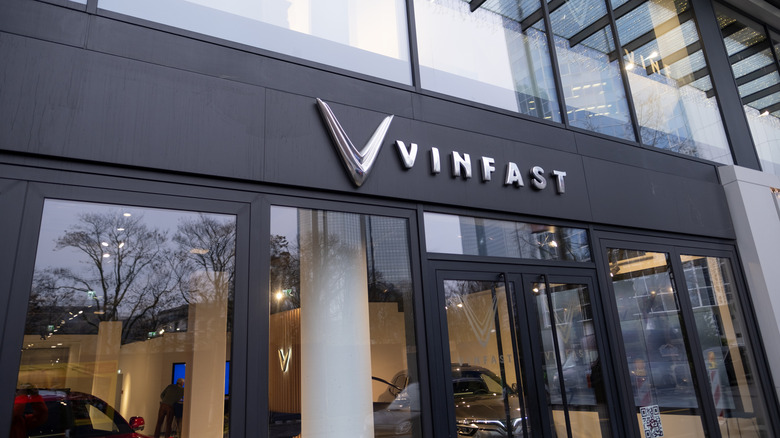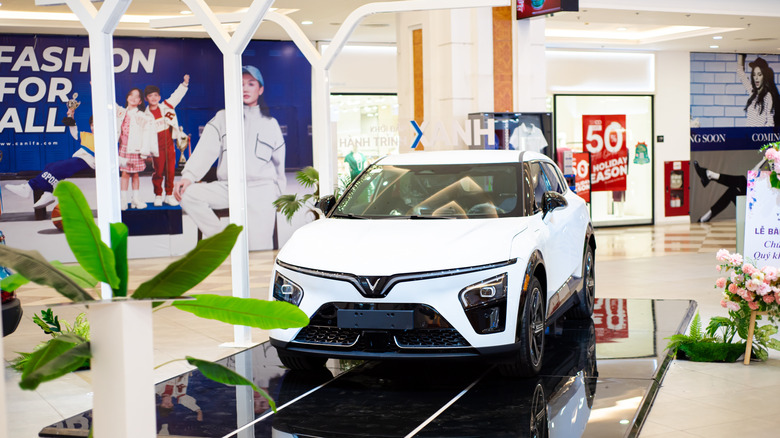The Electric Vehicle Dealership That's Closing A Ton Of Showrooms
VinFast will close five of its ten corporate showrooms in Canada, less than three years after entering the Canadian market. The shutdown includes its Yorkdale Shopping Centre location in Toronto, the Park Royal showroom in West Vancouver, the CF Carrefour Laval outlet in Quebec, as well as two not-yet-disclosed locations. The affected locations are all part of the company's corporate network, and are not franchises.
VinFast's decision to close these Canadian showrooms — as well as others in the U.S. — contradicts its initial 2023 push for a direct-to-consumer sales model. These company-owned stores allowed buyers walk in, test drive, and purchase — without a traditional dealership model. However, by shuttering these showrooms, the company is instead scaling back the very network it built for direct-to-consumer sales. In effect, this move steers the company towards a more hybrid sales approach — one that includes adding independent dealerships to handle sales and service alongside the company's remaining showrooms.
The pullback and how it affects Americans
VinFast's sweeping cutbacks ultimately come down to sales. In 2024, VinFast sold just 2,000 VF 8 and VF 9 models across all its Canadian stores, per Retail Insider. By the first quarter of 2025, sales plunged to only 315 vehicles nationwide. Even the company's flagship showrooms were selling only single-digit units each month, a pace that ultimately could not cover the rent, staffing, and inventory costs required for standalone locations. Similarly, VinFast's U.S. locations might not be far from the same issues, especially as consumers continue to question whether EVs are actually cost effective long term.
VinFast's U.S. rollout has struggled to gain traction. In its Q4 2024 earnings call, the company reported that just 4% of its global deliveries went to American buyers, up only slightly from 2% in Canada, according to Reuters. With roughly 97,000 VinFast vehicles delivered worldwide in 2024, per VinFast, that means just 3,900 vehicles reached the U.S. market — and barely more than the 2,000 VF 8 and VF 9 units hit Canada that year.
Those figures point to wider issues within America's electric vehicle market. In the first quarter of 2025, battery-electric models accounted for just 7.5% of new car sales in the United States, down from 8.7% in the previous quarter, according to Car Edge. This drop could be evidence that EV adoption is losing momentum among consumers, which could leave VinFast rethinking its American operations — especially as tariffs have even caused large automakers like Mazda to stop production in the U.S.
VinFast bets on franchised dealerships
VinFast's answer to sluggish sales has been to move away from its direct-sales model and instead embrace more traditional franchised dealerships in order to cut retail costs. This shift began in April 2025, when the company closed all six of its California stores as a test run before announcing its Canadian closures. As of April 2025, VinFast had 38 operational U.S. dealers across 16 states. These franchised partners could altogether replace the company's shuttered showrooms, bringing in more local market expertise, while taking advantage of the troubles at Tesla – one of the company's largest competitors in the U.S.
Franchising also helps VinFast lower its biggest expenses – like its costly company-owned showrooms. That money can instead go into car development and even branded repair shops for owners. Now, as local dealers franchise VinFast cars, the company can continue to grow without footing as significant a financial bill. This change was ultimately necessary after its costly failed attempts to sell through its own showrooms. While franchising shifts risk onto dealerships instead, success will now depend on just how quickly VinFast can earn consumer trust before its partners grow impatient.


